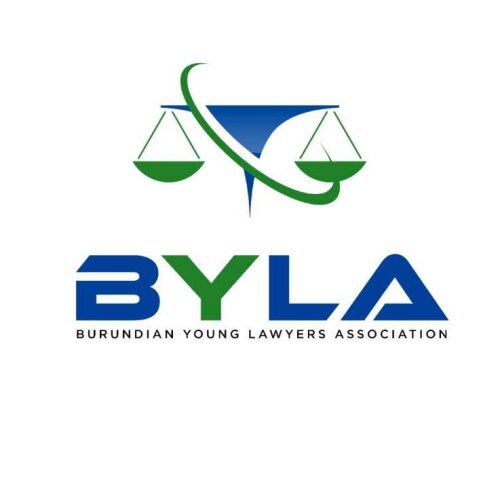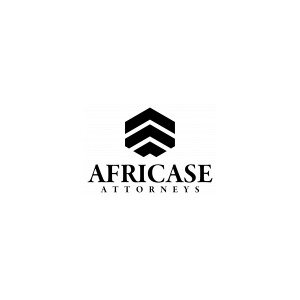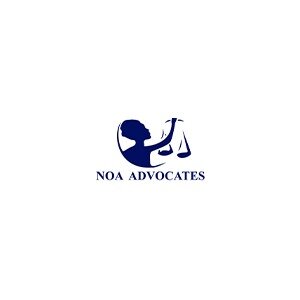Best Sustainable Finance Lawyers in Bujumbura
Share your needs with us, get contacted by law firms.
Free. Takes 2 min.
List of the best lawyers in Bujumbura, Burundi
About Sustainable Finance Law in Bujumbura, Burundi
Sustainable finance in Bujumbura, Burundi, refers to financial services and investments that consider environmental, social, and governance (ESG) factors. It involves encouraging responsible investments, supporting environmentally friendly projects, promoting inclusive economic growth, and upholding social standards within the financial system. In Burundi, the movement towards sustainable finance is growing, especially in light of global climate change commitments and local priorities for sustainable development. Stakeholders, including banks, investors, and enterprises, are increasingly focused on aligning economic goals with responsible environmental and social practices, guided by both international frameworks and evolving national policies.
Why You May Need a Lawyer
People and organizations commonly seek legal assistance in sustainable finance for several reasons:
- Drafting or reviewing green bonds, sustainability-linked loans, or investment contracts to ensure compliance with local and international standards.
- Understanding obligations when developing solar, hydropower, or other eco-friendly infrastructure projects.
- Navigating regulatory challenges involving renewable energy, waste management, or environmentally sensitive industries.
- Obtaining necessary authorizations or licenses from government authorities for sustainable business operations.
- Negotiating terms with partners, lenders, or investors, especially where ESG considerations are central to transactions.
- Addressing allegations or disputes related to environmental impact, social responsibility, or regulatory non-compliance.
A lawyer with expertise in sustainable finance can help protect your interests, avoid costly mistakes, and ensure your activities support both legal and sustainability goals.
Local Laws Overview
Burundi's legal framework for sustainable finance is evolving, combining traditional banking and finance regulations with newer policies addressing environmental and social matters. Key aspects include:
- Environmental Legislation: Laws such as the Environmental Code require that new ventures, especially in sectors like agriculture and energy, conduct Environmental Impact Assessments (EIAs) before launching operations.
- Banking Regulations: Financial institutions are supervised by the Banque de la République du Burundi (BRB), which may provide guidance on green lending practices and responsible investment criteria.
- Investment Incentives: The Burundi Investment Promotion Authority (API) provides incentives for investments in priority sectors, including renewable energy and environmentally responsible businesses.
- Corporate Governance: Companies operating in Burundi are increasingly expected to uphold good governance standards, integrating social and environmental concerns into business decisions.
- International Commitments: Burundi is a signatory to various international agreements, such as the Paris Agreement, influencing domestic policy on sustainable practices and emissions reduction.
These laws impact how businesses and investors approach finance, with a rising expectation to demonstrate sustainability and social responsibility.
Frequently Asked Questions
What is sustainable finance?
Sustainable finance refers to financial practices and investments that seek to generate positive environmental and social outcomes alongside financial returns. It encourages responsible lending, investment, and business practices that support sustainability goals.
Is there a legal requirement to conduct an Environmental Impact Assessment in Burundi?
Yes, most infrastructure and development projects must conduct an Environmental Impact Assessment under Burundian law before receiving government approval, especially if the project could affect the environment significantly.
Can individuals or SMEs access green finance in Burundi?
Yes, individuals and small to medium enterprises may access green loans or grants for renewable energy installation, sustainable agriculture, or other eco-friendly projects, although eligibility criteria and availability may vary.
Which government authorities regulate sustainable finance in Bujumbura?
Key authorities include the Banque de la République du Burundi (BRB), the Ministry for Environment, Agriculture and Livestock, and the Burundi Investment Promotion Authority (API).
Are there incentives for investing in sustainable businesses?
Certain sectors considered priorities for national development, such as renewable energy and sustainable agriculture, attract tax incentives and other benefits provided by the API, subject to meeting defined criteria.
Can I receive funding from international partners for green projects?
Yes, international donors, NGOs, and development banks provide funding for eligible projects that align with sustainable development goals. Legal advice is recommended to meet compliance and due diligence requirements.
What legal issues should I consider when launching a green business in Bujumbura?
You should consider company registration, compliance with environmental regulations, obtaining relevant permits, and adhering to local labor and corporate governance laws.
How can a lawyer help with sustainable finance projects?
A lawyer can guide you through regulatory compliance, draft and review contracts, represent you in negotiations, help secure permits, and advise on risk management for sustainability-linked projects.
What happens if a project does not comply with environmental or social requirements?
Non-compliance can result in fines, delays, denial of permits, reputational damage, and even criminal liability for serious violations. Legal guidance is crucial to avoid these issues.
Are there ongoing reporting or disclosure obligations for sustainable finance activities?
Certain projects and businesses may need to provide periodic environmental, social, and governance reports to regulators or investors, in line with local or international best practices.
Additional Resources
Several organizations and bodies provide guidance and support in sustainable finance in Bujumbura:
- The Banque de la République du Burundi (BRB) - oversees financial regulations and policy
- Ministry of Environment, Agriculture, and Livestock - sets environmental policy and standards
- Burundi Investment Promotion Authority (API) - provides investment incentives and advice
- National Environmental Committee - reviews EIAs and sustainability compliance
- Bujumbura Bar Association - directory of qualified lawyers specializing in finance and environmental law
- Local and international development organizations (such as UNDP Burundi) - technical assistance and funding
Next Steps
If you are considering a project or investment related to sustainable finance in Bujumbura, start by clearly defining your goals and assessing possible environmental and social impacts. Consult with the relevant government authorities to understand mandatory requirements and potential incentives. Seek the services of an experienced lawyer specializing in environmental, finance, or investment law to help you navigate regulatory processes, draft contracts, and ensure ongoing compliance. Preparing the necessary documentation and engaging legal counsel early can greatly increase the likelihood of a successful and responsible project.
Lawzana helps you find the best lawyers and law firms in Bujumbura through a curated and pre-screened list of qualified legal professionals. Our platform offers rankings and detailed profiles of attorneys and law firms, allowing you to compare based on practice areas, including Sustainable Finance, experience, and client feedback.
Each profile includes a description of the firm's areas of practice, client reviews, team members and partners, year of establishment, spoken languages, office locations, contact information, social media presence, and any published articles or resources. Most firms on our platform speak English and are experienced in both local and international legal matters.
Get a quote from top-rated law firms in Bujumbura, Burundi — quickly, securely, and without unnecessary hassle.
Disclaimer:
The information provided on this page is for general informational purposes only and does not constitute legal advice. While we strive to ensure the accuracy and relevance of the content, legal information may change over time, and interpretations of the law can vary. You should always consult with a qualified legal professional for advice specific to your situation.
We disclaim all liability for actions taken or not taken based on the content of this page. If you believe any information is incorrect or outdated, please contact us, and we will review and update it where appropriate.













